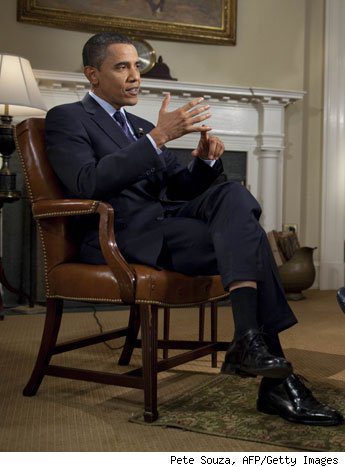President’s Health Reform Proposal Issued
 The President yesterday released with great anticipation his own version of the Reform Health Bill. This is the opening bid before Thursday’s Bipartisan Summit.
The President yesterday released with great anticipation his own version of the Reform Health Bill. This is the opening bid before Thursday’s Bipartisan Summit.
The proposed Bill for the most part is similar to the Senate Bill passed in December with a few minor changes anticipated to cost almost $1 trillion over 10 years. The comprehensive bill adds cost saving measures and more affordability for lower income Americans.
As expected and in step with both Houses the proposal eliminates pre-existing condition but raises the penalty for individuals not paying into a mandatory health plan to 2.5% of adjusted gross income by 2016. Included, also, is an increase in the tax credits for health insurance premiums a sort of carrot and the stick model.
Spurred by recent rate increases by insurers such as Anthem’s 39% planned rate hike in California there is a provision to establish a new Health Insurance Rate Authority to give guidance and oversight to states and monitor insurance market behavior. “If a rate increase is unreasonable and unjustified, health insurers must lower premiums, provide rebates, or take other actions to make premiums affordable.”
Also included is elimination of Nebraska’s politically wrangled special deal to help pay for a proposed Medicaid expansion, and would instead provide more help for all states to pay for their new Medicaid enrollees. It would delay enactment of a the Cadillac tax (40% tax in excess of $10,200/$27,500 for single/ families) on high-cost employer-sponsored insurance plans with no special exceptions to Union groups.
There is elimination of the Medicare Rx “doughnut hole” for Part D. There will be a 25% coinsurance fee instead for seniors in this gap. Currently, the gap starts after the first covered $2830 and continues on the next $4550 with only a 5% member responsibility thereafter.
Our small employer groups will be relieved to know that groups under 50 employees are exempt form the mandate. Under the Senate plan, employers with more than 50 employees that do not offer coverage would pay a $750 assessment for each full-time employee. The White House proposal would bump up that assessment to $2,000 for each full-time employee. However, in determining the assessment, an employer’s first 30 employees would be excluded from the calculation. Taking the case of an employer with 100 employees that did not offer coverage, for example, its assessment would be 70 times $2,000.
The proposal also is believed to retain a provision in the House and Senate bills that would impose a $2,500 annual cap, starting in 2011, on the maximum annual contributions that could be made to health care flexible spending accounts such as HRA and FSA.
Our position is that Health Care Reform done responsibly is important and inevitable for the sustainability of our country. While the current leaves millions uninsured it just as importantly leaves many who are already insured struggling to pay and possibly drop out going forward. Addressing the cost factors for those already insured is being understated.
Stay tuned till the end of the week for the Bipartisan Summit. We expect to see proposals on creating tax credits for employers who already offer benefits. Also allowing insurers to easily cross state lines and increase competition by creating a basic Federal health package. This will allow strong reputable companies like Humana to enter the NY/NJ/CT market and side step the choke full of mandates. NY already includes almost 20% of overall costs going to these add-ons.
